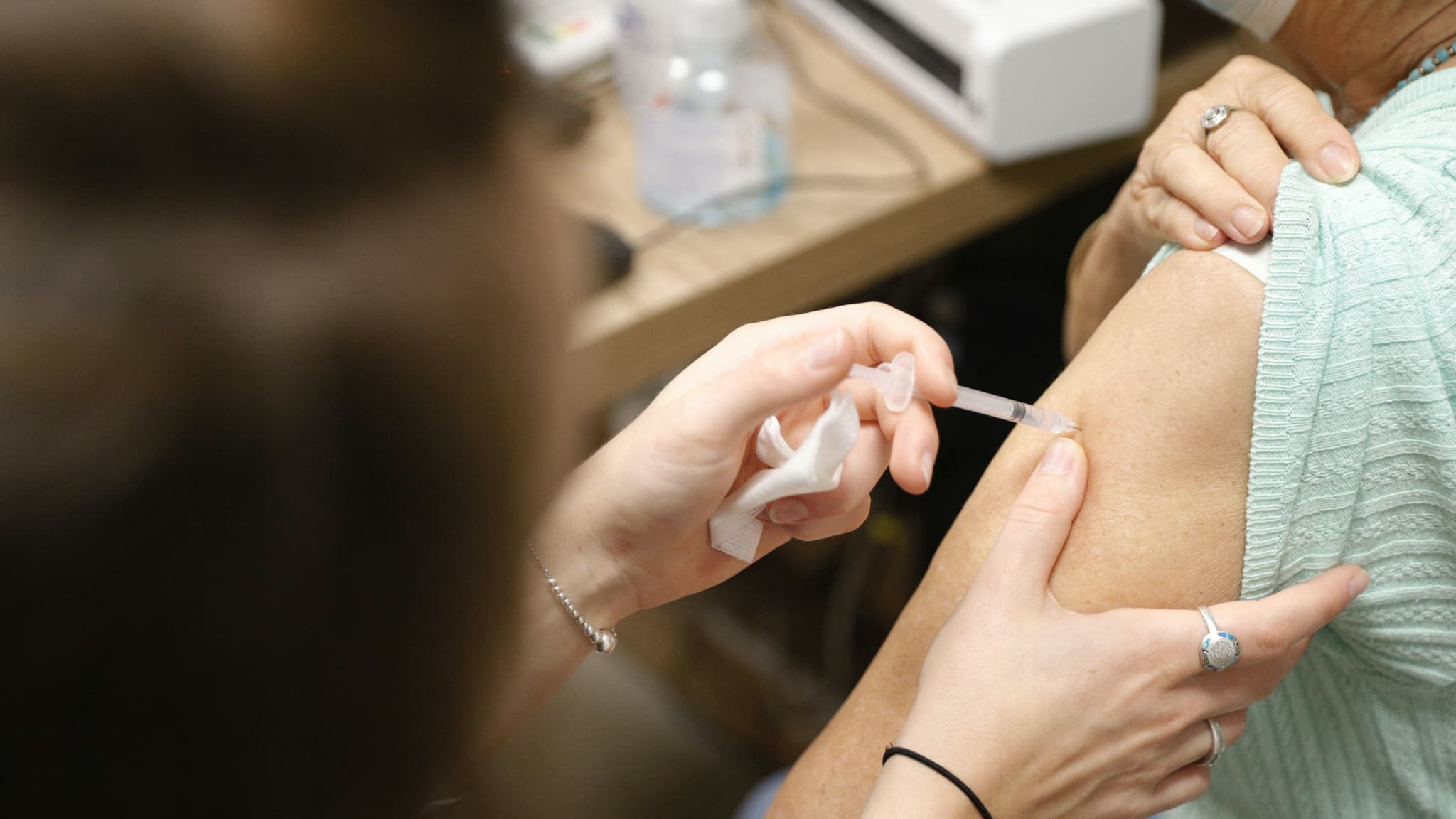Vaccination is still recommended for people over 65 and people at risk. A booster dose is also recommended for those over 80 years of age three months after vaccination.
Four years after the virus arrived in France, the virus is still spreading. Although it is now difficult to accurately estimate Covid-19 due to the decrease in the number of people being tested and the development of the case tracking system, the virus is still present on French territory and is subject to a new vaccination campaign until June 16.
Symptoms, barriers, vaccination… Review health authorities’ recommendations to reduce the risks of spreading the virus.
• Vaccination is recommended for those over 65 years of age and people at risk
Coronavirus vaccination is now recommended every year in the fall for people over 65 and people at risk of serious illness. These include people with comorbidities, immunocompromised people, and even pregnant women.
Another dose of the vaccine is also recommended in the spring for those over 80, immunocompromised people, and nursing home residents, within at least three months after their last infection or vaccination.
The Supreme Authority for Health also reminds us of vaccination and boosters for students and professionals in the health sectors, as well as for workers in emergency and fire services, and for all professionals who deal with people who are immunocompromised or immunocompromised. health insurance.
Booster doses are no longer recommended for other patients, but can still be used for free. This booster must be done within at least six months after the last COVID-19 vaccine injection or infection.
• Symptoms that you should pay attention to
COVID-19 can present with various symptoms that may or may not appear in combination. These include fever, respiratory signs such as cough, shortness of breath, or a feeling of tightness in the chest, or even headache and sudden loss of sense of smell or taste.
“Vulnerable people are more likely to develop severe forms of Covid-19, so they should be particularly vigilant when symptoms appear,” he recalls. health insurance.
If these symptoms appear, it is also still possible to do an antigen or RT-PCR test, which does not require a prescription. It is also recommended to contact your doctor and in case of breathing difficulties to call 15. At the same time, it is recommended to respect barrier signals and avoid any contact with people at risk.
• Actions to be taken in the event of a positive test result
In the case of Covid-19 infection, patients are required to notify those around them and people they have met “within 48 hours before symptoms appear” or “within seven days before testing positive that symptoms are absent.” Health insurance is no longer responsible for contacting patients' relatives, as was the case during the pandemic.
It is also recommended to contact your doctor so that he can assess the severity of the symptoms and ensure that you follow them during the illness. He is the one who can also prescribe you to stop working if your health condition does not allow you to work.
Although self-isolation is no longer mandatory since 1 February 2023 in case of infection, infected persons are invited to avoid contact with vulnerable people and respect barrier movements to avoid any contamination of other people. It is particularly recommended to wash your hands regularly, cough into your elbow, avoid touching your face, maintain a distance of at least two meters from others, avoid greeting hugs or even wear a surgical mask and ventilate rooms regularly.
• Treatments against Covid-19
Doctors can prescribe Baxolid to people at risk of severe forms, an antiviral treatment that reduces the risk of hospitalization, again according to health insurance.
“Treatment should start as soon as possible and in all cases before the fifth day of symptoms,” she explains.
For patients who suffer from fever or headache, it is possible to take paracetamol (not ibuprofen) at a rate of one gram up to three times daily.
It takes “two to three weeks of rest” to recover from COVID-19, even if certain symptoms may be felt several weeks after infection begins. It is recommended to monitor your temperature and contact your doctor if symptoms persist.
Most read

“Music guru. Incurable web practitioner. Thinker. Lifelong zombie junkie. Tv buff. Typical organizer. Evil beer scholar.”






More Stories
A large manufacturing project awaits space in the industrial zone
According to science, here are officially the two most beautiful first names in the world
Green space, 100% pedestrianized: DIX30 reinvents itself